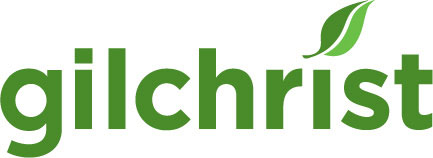Grief, Loss and Isolation: Gilchrist Supports the Elderly in Residential Care Communities

The wrath of the coronavirus pandemic has been the backdrop of daily life during the past 13 months. As a nation, we compared data as restrictions locked into place. In our communities, we rallied to support our health care workers. At home, we became educators, jugglers and short-order cooks, keeping our families under our wings as we tried to tame the spread of a virus running wild.
Across the country, thousands of residential care communities housing our vulnerable loved ones closed their doors to the outside. Visits came to a screeching halt and were replaced with phone calls and FaceTime, if and when a care provider was available to assist.
For residents, grief and worry came rushing in like a torrential wave. Who will die? Who will be rushed to the hospital? Will I die? Will I ever see my loved ones again? The loss of contact was a thief in the night for so many.
For health care staff in these residential communities, understanding and being empathic to grief and isolation were added to the daily list of “other duties as assigned.” Already bone-thin from exhausting long shifts and added personal protective equipment, they had to somehow muster additional bandwidth to care for residents. This became increasingly difficult when the elements of dying and death entered the room. Coping became an act of survival.
As providers of counseling and support, we at Gilchrist had to find avenues to support the most vulnerable. Technology became our lifeline to caring for patients and being present at their bedsides. Whenever possible, Gilchrist’s nurses, hospice aides, chaplains and social workers used their arsenal of skills to minister to patients nearing the end of life. In some rooms, many closed off, patients were afraid and sometimes even incapable of understanding the war going on outside their doors.
The call to action had never been greater. Gilchrist teams mobilized to share resources and provide safe spaces to vent, heave and cry. They helped patients choke out their grief and mourn losses that had been pushed down and ignored for so many months. Our counselors used every imaginable platform to be face-to-face with residents. They reached out to touch hearts without ever touching hands. Our residential community leaders tapped into various virtual events and learning forums to be a sling of support to their staff as they soldiered on with difficult, even crippling workloads.
With the arrival of vaccines, we can see a light in the tunnel. But the grief remains. It will become part of us as we adapt to “a different normal.” How can you help? The simplest formula I know is the 4 T’s: Talk, Tears, Touch and Time. Everyone has a story to share—Help them, hold them and ask for divine assistance to “be present.” Each one of us matters.
To learn more about Gilchrist’s Counseling & Support program, visit gilchristcares.org/counseling-support.
To support Gilchrist’s work, visit gilchristcares.org/give.


